24/04/2025 - In Memoriam: His Holiness Pope Francis
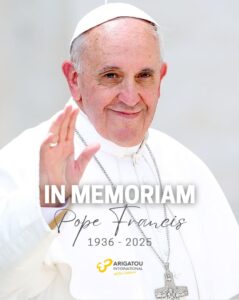
It is with deep sorrow that we at Arigatou International mourn the passing of His Holiness Pope Francis. A moral and spiritual leader to millions around the world, Pope Francis leaves behind a profound legacy of compassion, humility, and tireless commitment to human dignity, peace, and justice.
His unwavering dedication to the promotion of human fraternity and his calls for solidarity across religious and cultural divides have deeply inspired our work in interfaith dialogue and cooperation. His vision for a world rooted in shared values and mutual respect echoes the very heart of Arigatou International’s mission—to build a better world for children – through our work ethics education, intercultural and interreligious collaboration, and the promotion of children’s rights and well-being.
Pope Francis was a steadfast advocate for the protection of children from all forms of harm, violence, and abuse. He confronted painful truths with courage and called upon religious and political leaders alike to uphold their responsibilities to safeguard the dignity and safety of every child. His moral leadership on this issue challenged institutions to change and inspired countless efforts to ensure that no child suffers in silence or fear.
He reminded the world that caring for children, especially those most vulnerable, is not only a moral imperative but a sacred duty. His support for holistic education and his emphasis on nurturing the spiritual and moral development of young people have been a beacon for all those striving to create safe, inclusive, and nurturing environments for children everywhere.
At this time of mourning, we extend our heartfelt condolences to the Catholic community and all those whose lives have been touched by his words and deeds. May we honor his memory by continuing to walk the path of dialogue, peace, and solidarity—together building a future where every child can grow up with dignity, joy, and hope.
With respect,
Arigatou International
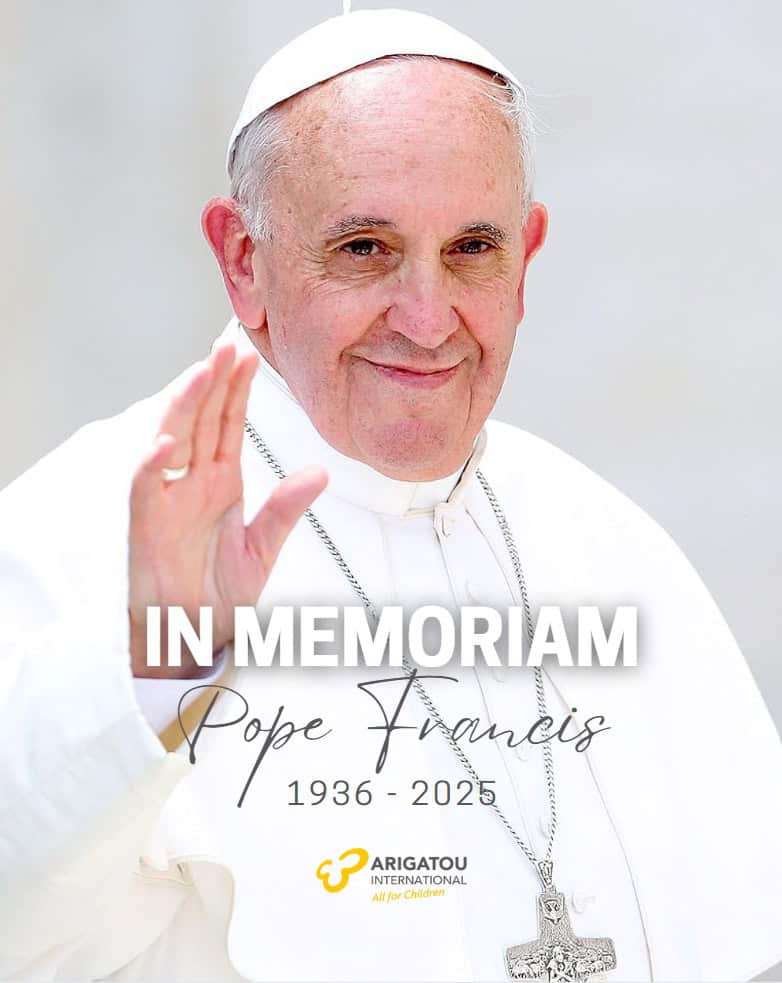
The post In Memoriam: His Holiness Pope Francis appeared first on Arigatou International.
18/04/2024 - In Memoriam Dr. A.T Ariyaratne (1931 – 2024)
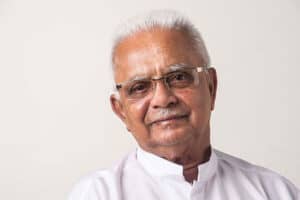
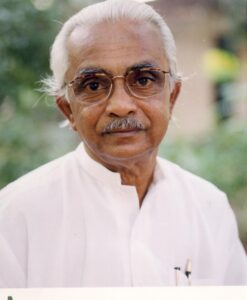
Arigatou International is deeply saddened to learn about the passing of Dr. A.T. Ariyaratne, founder of Sarvodaya Shramadana Movement in Sri Lanka.
Dr. Ariyaratne’s remarkable contributions to society as well as his unwavering commitment to peace, social justice and community empowerment have left an indelible mark on the world, transforming the lives of countless individuals and fostering positive change on a global scale.
Dr. Ariyaratne was a close friend of the late Rev. Takeyasu Miyamoto, founder of Arigatou International. They both shared a vision of a more just, peaceful and sustainable world. Dr. Ariyaratne was a founding member of the Global Network of Religions for Children (GNRC), inaugurated in Tokyo in the year 2000. Working closely with Rev. Keishi Miyamoto, the current President of Arigatou International, Dr. Ariyaratne served as its first Regional Coordinator for the South Asia sub-region. Dr. Ariyaratne led the organization of the very first regional conference of the GNRC, demonstrating his unwavering dedication to the advancement of children’s rights and well-being. He was also a member of the Interfaith Council on Ethics Education for Children that helped advancing the development of Arigatou International’s Ethics Education Initiative.
Dr. Ariyaratne founded and developed the Sarvodaya Sharamadana movement through a holistic approach to development, rooted in the values of compassion, equality, and social justice. Througouth his life, Dr. Ariyaratne dedicated his efforts to uplifting rural and underprivileged communities across Sri Lanka and beyond. Following the Buddhist principles of loving kindness, compassionate action, service to others and working in a spirit of equality, he championed interfaith collaboration in Sri Lanka to promote a peaceful resolution of the conflict, and calling for the spiritual awakeness of its people towards unity.
May his legacy continue to inspire hope and transformation for generations to come, and his teachings and principles he strived for, continue to impact local communities and individuals, including children around the world.
Our thoughts and deepest condolences are with Dr. Ariyaratne’s family, friends, and all those whose lives he enriched. May his spirit live on in the hearts of all those who were fortunate enough to know him and be touched by his presence.
The post In Memoriam Dr. A.T Ariyaratne (1931 – 2024) appeared first on Arigatou International.
13/03/2024 - Empowering Teachers and Learners through Ethics Education in Mauritius
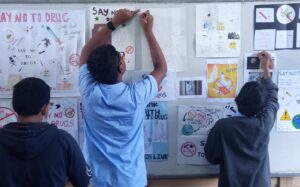
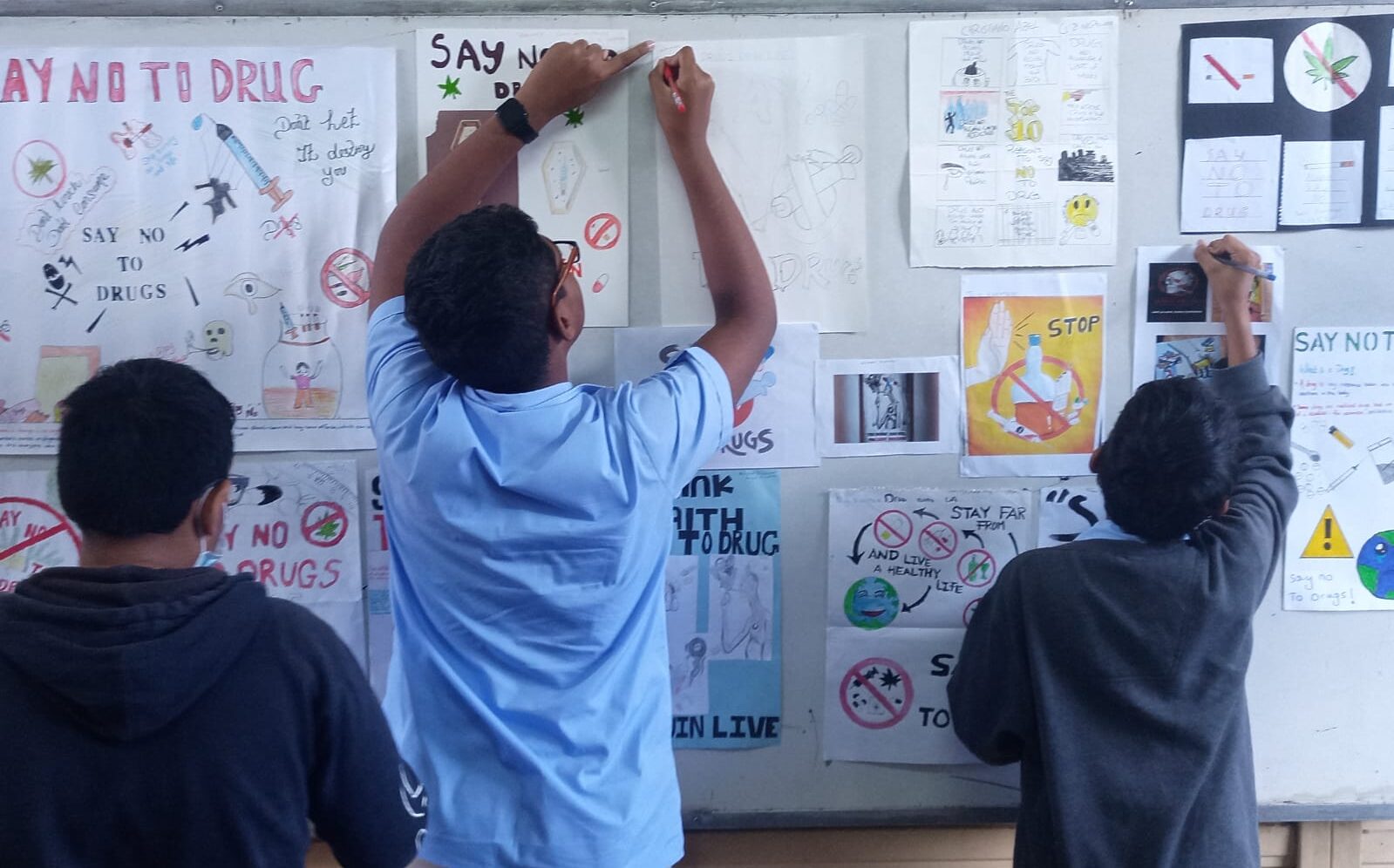
Mauritius successfully completed the implementation of ethics education nationally through the Ethics Education Fellowship. The impact of this initiative extended to eight schools, involving 24 teachers and 480 school children.
One major challenge the country faces in terms of its national educational framework is the need to identify approaches that address diverse cultural, religious, and ethical perspectives present within Mauritian society. Currently, the existing subjects of Life Skills Education and Social & Modern Studies attempt to address these values. However, their practical application remains limited inside and outside of the classroom.
The integration of ethics education into the schools presents significant opportunities for bridging this missing link. Ethics education can foster critical thinking, dialogue and empathy among learners through transformative learning approaches and experiential-learning activities. By emphasizing values such as respect, responsibility, and integrity, ethics education can contribute to the holistic development of students, preparing them to navigate complex ethical dilemmas in their personal and professional lives.
National Teacher Training Workshops
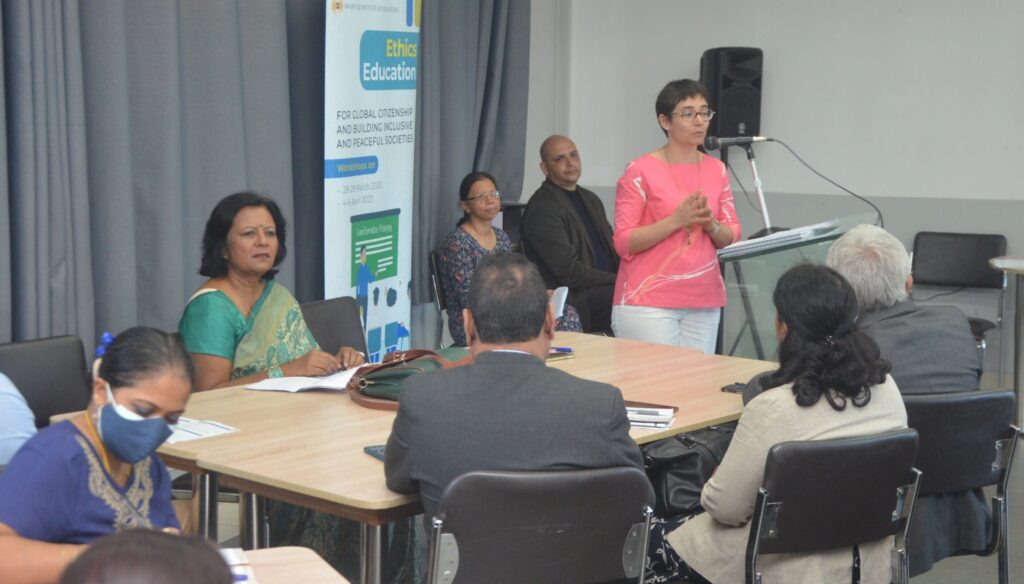
The Ethics Education Fellowship initiative started its local implementation in Mauritius with a National Teacher Training workshop in between March and April of 2023 in Reduit. The 5-day workshop involved 24 educators from eight schools teaching Life Skills Education and Social & Modern Studies and six academics from the Mauritius Institute of Education (MIE) involved in teacher training.
This workshop was facilitated mainly by the Ethics Education Fellows from Mauritius who underwent multiple capacity-building engagements from the inception of the fellowship, with the support of Mr. Suchith Abeywickreme, Programme Manager of the Ethics Education Fellowship Program Lead and Eleonora Mura, Senior Expert – Ethics Education for Children from Arigatou International – Geneva. The workshop focus and materials were customized to match the context of educators who work with the extended program students, Grades 7 – 9 while exploring the synergies around the subjects of Ethics Education, Life Skills Education and Social and Modern Studies. The workshop also focused on the localization of ethics education approaches allowing better coherence and relevance in Mauritius’ culture and social settings.
During the workshop, thematic areas key to building positive teacher-learner relationships were discussed. Participants reflected on social transformation and learned how to create safe learning environments, including the principles and the use of dialogue. At the end of the training, participants shared how it helped them to step out of their comfort zones as teachers, allowing them to break out of the traditional teaching methods where the teacher decides what happens in the classroom, the topic of discussions and teaching methods. They explored learner-centered approaches where the learning becomes a collaborative engagement. This understanding was paramount for the transformation process that the fellowship was built on and considered to be a great outcome for the participating teachers.
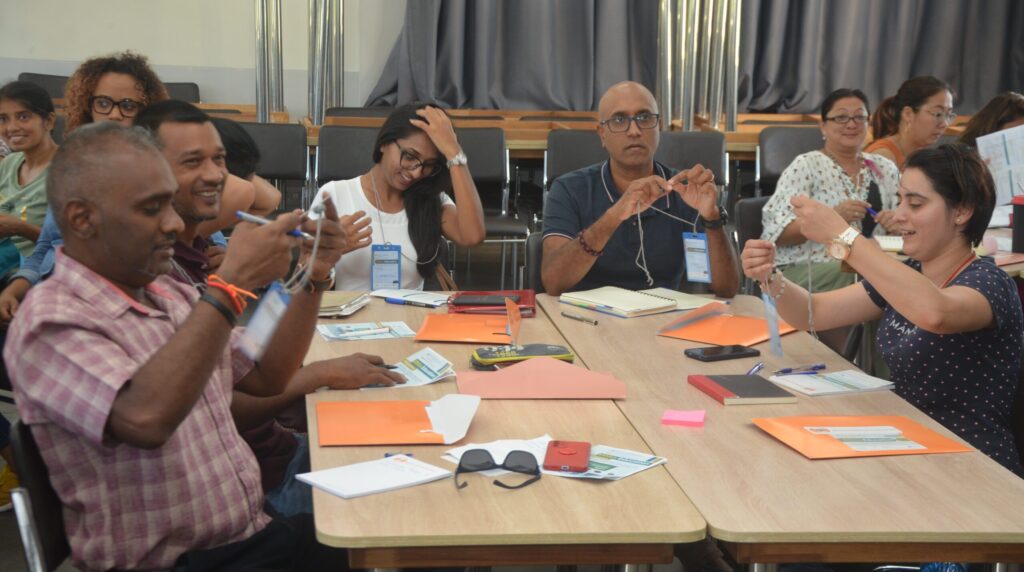
In Mauritius, the Council of Religions functions as a local implementation partner that provides support for the design and activation of ethics education in the country. Through their support, over 480 learners were engaged and empowered to become global citizens who actively participate in the promotion of inclusive and peaceful societies. Through these local interventions, the Fellowship envisions garnering further support from respective decision-making bodies in Mauritius. The fellows aim to transform their national education system to strengthen its core values, particularly the enhancement of life skills through intercultural and interfaith awareness building.
Local Implementation at Schools
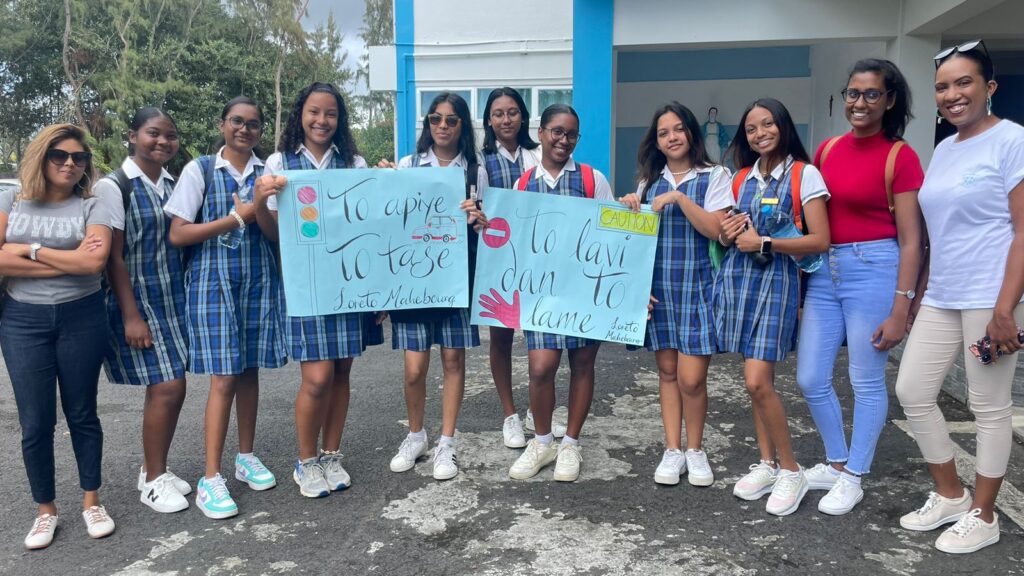
The implementation of the program at the school level started after the teacher training workshops conducted in the beginning of 2023, which capacitated 24 secondary school teachers.
The implementation with children took place in eight schools, targeting learners from grades 7, 8 and 9. Ethics education and its transformative pedagogy were integrated into the Life Skills Education and Social & Modern Studies curriculum. The implementation helped nurture ethical values in children like empathy, respect, and appreciation of diversity. Children were empowered to engage in collaborative actions to positively transform their communities, starting with their school settings.
While the integration of Ethics Education concepts to existing school curricula was taking place, the program also introduced various extra-curricular activities which allowed the learning from and within the community to materialize. Initiatives such as classroom dialogues, cultural and religious field visits, stakeholders’ speeches, etc. took prominence among them and created experiential platforms to build intercultural and interreligious awareness, solidarity, respect and tolerance among young learners and their community members.
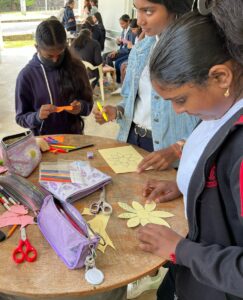 It was noted that through these engagements, the relationships between the teachers and learners significantly developed over time. This was also reflected outside of the classroom as the relationships between the learners and their parents and extended community also improved.
It was noted that through these engagements, the relationships between the teachers and learners significantly developed over time. This was also reflected outside of the classroom as the relationships between the learners and their parents and extended community also improved.
Reflecting on this practice, one student shared that, “With the help of this Ethics Education program, my class and I were able to form a stronger bond with our teacher.”
Overall, the program fostered a more participatory learning environment, with students actively involved in discussions and activities. The introduction of ethics education provided learners with fresh perspectives and approaches to knowledge acquisition. It helped to develop their competencies in critical thinking, problem-solving, building respect, equality and solidarity. This contributed to a more peaceful and inclusive environment within the classrooms and beyond.
The teachers also improved their teaching methods, by using transformative pedagogical approaches. By incorporating ethics education into their daily practice, educators received the opportunity to become “role models”, leading to more effective student outcomes.
Ethics Education Fellowship
The Ethics Education Fellowship is a flagship initiative under the collaboration of Arigatou International, the Guerrand-Hermès Foundation for Peace, the KAICIID International Dialogue Centre, the Muslim Council of Elders, the UNESCO Regional Office for Eastern Africa, and the UNESCO New Delhi Cluster Office, in collaboration with the National Commissions for UNESCO of the participating countries.
The program was launched in 2022 and currently functions within six countries: Bangladesh, Indonesia, Kenya, Mauritius, Nepal and Seychelles, linking the collective efforts of the Ministries of Education. Through the Ethics Education Fellowship program, 323 teachers have been trained, successfully reaching 7,334 children in total.
We would like to acknowledge the great support we have received in the implementation in Mauritius from the local partners, collaborators, educators, government and non-government organizations, and religious and academic institutions. Similarly, we are grateful to the unwavering commitment showcased by the four Ethics Education Fellows from Mauritius; Mr. Rajiv Kumar, Mr. Jay Ramsaha, Ms. Swalehah Beebeejaun and Ms. Seema Goburdhun, without which this success would not have been a possibility.
The post Empowering Teachers and Learners through Ethics Education in Mauritius appeared first on Ethics Education for Children.






